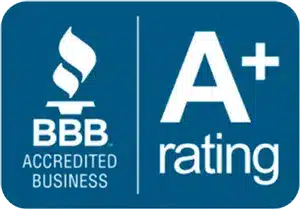The Human Immunodeficiency Virus (HIV) has impacted millions of people around the world. It’s a global health issue. Even though there is no cure for HIV, improvements in treatment options have drastically changed for those who carry the virus. Our goal at Equality Health is to offer comprehensive HIV treatment. With the services and treatments provided by Equality Health, in Norman, OK, we help you control the virus and maintain good, balanced health. Our specialized HIV care program aims to empower those living with the virus while ensuring they receive the best possible care and support along the way. So what are you waiting for? Connect with us right away.

Basics of HIV Treatment
One of our main goals for HIV patients is viral suppression (the absence of the virus in the bloodstream. Not only is achieving it good for the patient’s health, but achieving viral suppression is also essential for stopping the spread of HIV to others.
Our HIV treatment in Norman, OK, includes–
Antiretroviral Therapy
Antiretroviral Therapy (ART) is one of the major treatments for HIV. We use various drugs for the treatment plan ART. We use them for various phases of the HIV life cycle. These drugs are divided into a number of categories, including–
- NNRTIs (non-nucleoside reverse transcriptase inhibitors) – NNRTIs block reverse transcriptase similarly to NRTIs but differently.
- Inhibitors of Nucleoside/Nucleotide Reverse Transcriptase (NRTIs) – These medications block reverse transcriptase, an enzyme required for viral replication, preventing viral replication.
- PIs (protease inhibitors) – As another viral enzyme involved in the creation of fresh, contagious HIV particles, protease is inhibited by PIs.
- Inhibitors of Integrase Strand Transfer (INSTIs) – INSTIs obstruct the incorporation of HIV genetic material into the DNA of the host cell.
Combination Therapy
A key component of HIV treatment is combination therapy, which is also known as Highly Active Antiretroviral Therapy (HAART). It involves simultaneously targeting the virus with several medications from various classes. This strategy offers the following benefits–
- Viral Suppression Improvements – Combining medications with various modes of action gives viruses a powerful punch, increasing the likelihood that viral suppression will be achieved and maintained.
- Drug Resistance Reduction – If we use one drug only to treat HIV, then the virus can quickly mutate and become resistant to it. We prefer combination therapy as it increases the effectiveness of treatment by making it more difficult for the virus to develop resistance.
- Reduced side effects – Lowering individual doses is possible when using a combination of medications, which lowers the risk of side effects while retaining treatment effectiveness.
Initiating HIV Treatment
When we start the treatment of HIV, it involves a couple of variables, such as CD4 cell count, viral load, and specific health conditions. Thus, the timing is extremely important.
- CD4 Cell Count – These cells in your blood are important components of the immune system. In the past, treatment was started to stop opportunistic infections when CD4 cell counts dropped below a predetermined level (for example, 200 to 350 cells/mm3). Recent recommendations, however, favor beginning treatment regardless of CD4 cell count.
- Viral Load – HIV bloodstream levels are determined by viral load. Higher viral loads indicate more active HIV replication. The main goal of HIV treatment is to lower the viral load. To achieve rapid viral suppression, newer guidelines frequently suggest beginning treatment as soon as an HIV diagnosis is confirmed, regardless of CD4 cell count.
- Individual Health – Pregnancy or other health conditions that are present at the time of treatment decision-making may have an impact. For instance, it is usually recommended that pregnant HIV-positive women start treatment as soon as possible to stop mother-to-child transmission.
Antiretroviral Medications for HIV Treatment Regimen
People with HIV can live fulfilling lives while successfully managing their condition thanks to improvements in treatment options and specialized facilities that we provide. Our treatment plans include medications and resources that provide the best results for their health and well-being.
Checking Your HIV Treatment Progress and Monitoring Them
At Equality Health in Norman, OK, our comprehensive HIV treatment plan care includes closely monitoring the HIV treatment progress. To ensure that HIV treatment is effective, we regularly monitor through CD4 cell counts, viral load testing, and other laboratory markers.
Let’s look more into these processes–
- Analysis of immune function (CD4 cell counts)
CD4 cells, or T-cells, support the immune system’s ability to combat infections. We keep track of the CD4 cell counts to keep track of the health of the Immune system. If CD4 cell counts drop, it is a sign that the virus is having an impact on the immune system, and the treatment regimen or other factors need to be evaluated.
- Testing for viral loads
We do viral load testing to check the level of HIV in the bloodstream. It indicates how well antiretroviral therapy (ART) is working in your treatment process. To maintain/achieve an undetectable viral load, the virus should be suppressed to extremely low levels. An undetectable viral load also lowers the risk of HIV transmission to others.
A key objective of managing HIV is achieving and maintaining viral suppression, and monitoring frequency is crucial for determining treatment effectiveness.
Adherence to HIV Treatment
At Equality Health in Norman, we are aware of how important adherence is to managing HIV and achieving the best possible health outcomes.
Here are some of the helpful tips to maintain adherence–
- Reminders for medications – To help you remember to take your medication regularly, we advise you to set a daily alarm, use medication reminder apps, or use pill organizers. Adherence requires consistency.
- Add Medication to Your Daily Routine – Link the time you take your medication to a routine task, like eating or brushing your teeth so that you take it at the same time every day. It might be simpler to remember with this routine.
- Seek Assistance – Tell a family member, partner, or trusted friend about your treatment plan so they can help you remember to take your medication. Having a network of supporters can be helpful both to remember medication and for overall support.
- Maintain a Medication Log – Keep track of the times you take your medications. This process can assist you in monitoring your adherence and locating any trends or problems.
- Open conversations with healthcare professionals – You can openly communicate with us if you experience problems with your medication, such as side effects or issues with the dosing schedule. Facing such issues can alter your course of treatment or offer remedies to deal with these problems.
Managing Side Effects of HIV Treatment
Some of the common side effects are–
- Lipid and Blood Sugar Changes
- Headache
- Nausea and Vomiting
- Skin Rash
- Fatigue
Here are some helpful tips to manage your side effects–
- Time and Nutrition – Taking medications with food can help reduce some side effects, such as nausea. You must observe the suggested timing guidelines for the particular medications that you are taking.
- Stay Hydrated – To help with managing adverse effects like diarrhea and nausea, drink plenty of water.
- Changing Prescriptions – Your healthcare provider may adjust your treatment plan by switching to a different medication that is better tolerated if side effects worsen or persist.
- Nonprescription Treatments – Antacids and anti-diarrhea medications are examples of over-the-counter treatments that can lessen some side effects. However, before using them, speak with your healthcare provider.
Tailoring HIV Treatment for Specific Populations
We at Equality Health understand that HIV treatment should be customized to meet the particular requirements of different populations. Here’s how we treat different HIV patients as each has their own different individual needs–
HIV-positive Pregnant Women
Treating an HIV-positive pregnant woman involves the following processes at Equality Health–
- PMTCT, or Mother-to-Child Transmission Prevention – The prevention of HIV transmission from mother to child is a top priority at our facility. We prescribe antiretroviral therapy (ART) to HIV-positive pregnant women to achieve viral suppression and lower the risk of transmission to the unborn child.
- Monitoring – Routine monitoring is essential during pregnancy. To make sure that both the mother and the unborn child are healthy, we do viral load testing, CD4 counts, and follow closely with your obstetrician.
- The delivery method – Based on the person’s viral load and other medical factors, we can work with your obstetrician regarding the specific mode of delivery (vaginal or cesarean).
Young children and teenagers
Our treatment plans for teenagers and young children involve the following–
- Early Detection and Intervention – To avoid complications and promote healthy development, we place a strong emphasis on early detection and therapy for kids and teenagers living with HIV.
- Pediatric Supplements – HIV medications that are age-appropriate are available at Equality Health, including pediatric formulations that come in syrup or dissolvable tablet form.
- Psychosocial Assistance – For children and adolescents with HIV, our center provides psychosocial support to meet their specific emotional and developmental needs.
HIV Treatment as Prevention
Those who have HIV can live healthy lives for a long time by taking medications that prevent the virus from being detected. HIV cannot be transmitted through sex if a person has achieved and maintains an undetectable viral load. We call this Undetectable equals Untransmittable or U=U for short. U=U is a ground-breaking development in HIV prevention and care. “Undetectable” denotes a level of HIV in the bloodstream that is too low to be picked up by routine viral load tests as a method of HIV testing. Usually, to achieve this, HIV medications must be taken correctly and consistently. We also offer PrEP for HIV prevention in Norman as a method of prevention and safeguarding against the disease.
Contact Equality Health For HIV Treatment In Norman, OK
We are here to assist if you or someone you know needs HIV treatment in Norman, OK. At Equality Health, we are happy to provide thorough HIV treatment services. We are committed to giving HIV-positive patients excellent care. Our skilled healthcare professionals provide individualized HIV treatment services and overall STD testing and treatments for STDs along with Hepatitis C testing and treatments for Hepatitis C in Norman. Please get in touch with Equality Health to find out more about our services and make an appointment. You can call us at (405) 761-2762.
Frequently Asked HIV Treatment Questions (FAQs)
Yes! Most insurance will cover most, if not all, of the cost of testing and treatment for HIV. We can also use various patient assistance programs for any lingering cost. For uninsured patients, we collaborate with our partners to cover the patient’s insurance costs. From there, the patient can use their insurance to get prescription drugs and have doctor visits covered.
HIV treatment will last for life. Patients can achieve an undetectable viral load within weeks to a few months of starting treatment if they take HIV medications as prescribed. They can quickly reduce their viral load to undetectable levels.
There is no cure for HIV. But you can maintain and control it with HIV treatment. The treatment involves antiretroviral therapy, which reduces the HIV levels if you take it every day as prescribed.
Ideally, as soon as possible to prevent any further damage to the immune system and to get you feeling back to healthy as quickly as possible.
You can get HIV treatment at Equality Health. Our treatment plans involve combination therapy (also known as Antiretroviral Therapy). To provide seamless and continuous care for our patients, we collaborate closely with other healthcare professionals and specialists. Our objective is to provide people with knowledge so they can make the best decisions for themselves and lower the risk of transmission.


